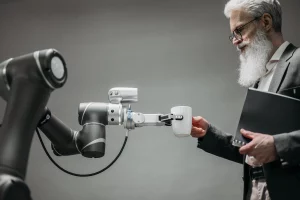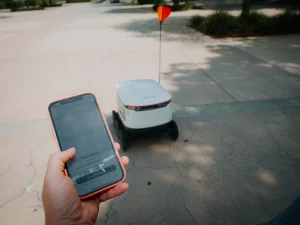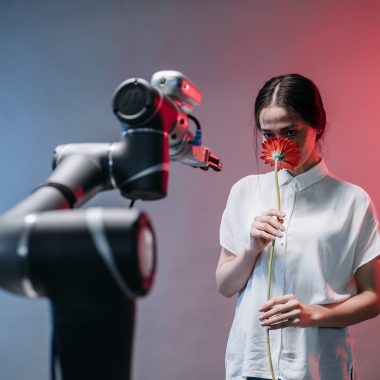written by Julstory editors
Urban life is becoming increasingly complex as the world’s population continues to grow and cities face unprecedented challenges. To address these issues, the concept of smart cities has emerged, harnessing the power of artificial intelligence (AI) to enhance urban living through innovation and efficiency.
The Power of AI in Smart Cities
Artificial intelligence plays a pivotal role in the development of smart cities, providing the necessary tools to optimize various aspects of urban life. From traffic management to waste reduction, AI applications are revolutionizing city planning and operations.
- Intelligent Transportation Systems: AI-powered traffic management systems can analyze data from multiple sources, such as cameras and sensors, to optimize traffic flow, reduce congestion, and improve public transportation. These systems can also facilitate better communication between vehicles and traffic infrastructure, promoting safer and more efficient travel for all road users.
- Energy Management: AI-driven smart grids can optimize energy consumption and distribution, leading to more sustainable and efficient energy use in urban areas. By monitoring and analyzing energy usage patterns, AI can identify opportunities for conservation, enabling cities to better allocate resources and reduce greenhouse gas emissions.
- Waste Management: AI can enhance waste collection and recycling processes, helping cities reduce waste and lower their environmental impact. By utilizing machine learning algorithms, AI can predict waste generation patterns and optimize collection routes, ensuring timely and efficient waste removal.
- Public Safety: AI can assist law enforcement and emergency services through predictive analytics and real-time monitoring, improving response times and overall public safety. By analyzing data from sources such as social media, security cameras, and emergency calls, AI can identify potential risks and help authorities proactively address safety concerns.

picture by Kindel Media - Urban Planning: AI-powered tools can analyze large amounts of data to support city planners in making more informed decisions, leading to better-designed and more livable urban environments. By considering factors such as population density, transportation networks, and green space distribution, AI can help planners create cities that are more resilient, sustainable, and adaptable to future challenges.
Innovative Solutions to Urban Challenges
AI-driven smart city initiatives are providing innovative solutions to various urban challenges, improving the quality of life for city dwellers.
- Air Quality: AI-based air quality monitoring systems can track pollution levels and provide real-time data to city officials and residents, enabling targeted efforts to improve air quality. By analyzing the data, cities can identify pollution hotspots and implement measures such as traffic restrictions or green infrastructure to mitigate the issue.
- Healthcare: AI can enhance healthcare delivery in urban areas by streamlining medical data management, optimizing resource allocation, and supporting telemedicine services. This can lead to more accurate diagnoses, improved treatment plans, and increased access to healthcare for underserved populations.
- Water Management: AI-powered systems can monitor and analyze water usage, enabling better management of water resources and reducing waste. These systems can identify leaks, optimize water distribution, and help city planners design more efficient water infrastructure, ensuring a reliable water supply for growing urban populations.
- Education: AI applications can support personalized learning, enhance teacher-student interaction, and facilitate remote education, improving educational outcomes in urban areas. By using AI to analyze student performance data, educators can tailor instruction to individual needs, helping students reach their full potential.

picture by Kindel Media - Citizen Engagement: AI can help foster a more inclusive urban environment by facilitating communication between city officials and residents, allowing for more effective decision-making based on citizen input. AI-powered chatbots and virtual assistants can provide information on city services, gather feedback, and connect citizens with the appropriate resources, promoting a sense of community and fostering greater civic engagement.
The Ethical Considerations of AI in Smart Cities
As AI becomes more integrated into urban life, it is crucial to address the ethical concerns that arise from its use in smart city initiatives.
- Privacy: The collection of vast amounts of data from city dwellers raises concerns about privacy and surveillance. Clear guidelines and regulations must be in place to protect citizens’ rights.
- Bias and Discrimination: AI systems may inadvertently perpetuate existing biases in society. To ensure equitable outcomes, developers must actively work to address potential biases in AI algorithms.

picture by Kindel Media - Transparency and Accountability: It is essential to establish transparent mechanisms that hold AI systems and their creators accountable for their actions and decisions.
- Inclusivity: Smart city initiatives must ensure that the benefits of AI-driven innovations are accessible to all citizens, regardless of socioeconomic status or other factors.
Artificial intelligence’s influence on smart cities goes beyond improving the quality of life for residents—it also has significant economic implications. By streamlining processes and optimizing resource allocation, AI can help cities generate substantial cost savings and foster economic growth.
- Job Creation: While concerns about AI replacing jobs exist, the technology also has the potential to create new employment opportunities. AI-driven industries, such as data analytics and autonomous vehicle development, can generate jobs in smart cities.
- Cost Savings: AI can optimize various city operations, leading to reduced expenses. For instance, smart traffic management can lower fuel consumption and maintenance costs for public transportation, while AI-powered energy management can reduce energy bills for both residents and businesses.
- Economic Growth: AI can stimulate economic growth by enabling new business opportunities and attracting investment. Companies developing AI solutions can contribute to a city’s economy, while efficient city operations can create a more attractive environment for businesses.
- Global Competitiveness: Smart cities that harness AI effectively can position themselves as global leaders in innovation, attracting talent and investment from around the world.
Sustainable Development and AI-driven Smart Cities
Sustainability is a crucial aspect of smart city development, and artificial intelligence can play a vital role in helping cities achieve their sustainability goals. By optimizing resource usage and supporting eco-friendly initiatives, AI can contribute to the creation of more sustainable urban environments.
- Green Transportation: AI can promote sustainable transportation options, such as electric and autonomous vehicles, bike-sharing programs, and efficient public transit systems. These solutions can reduce greenhouse gas emissions and improve air quality in urban areas.

picture by Kindel Media - Smart Buildings: AI-powered systems can optimize energy consumption in buildings, reducing their environmental impact. By automating temperature control, lighting, and other aspects of building management, AI can help create greener, more energy-efficient structures.
- Waste Reduction: AI can support waste reduction efforts by optimizing waste collection and recycling processes. Intelligent waste management systems can identify areas with high waste generation, enabling targeted efforts to minimize waste and promote recycling.
- Urban Green Spaces: AI can assist city planners in designing and maintaining urban green spaces, which provide essential ecosystem services and enhance the quality of life for residents. AI-powered tools can analyze data on land use, vegetation, and other factors to optimize green space allocation and maintenance.
The integration of artificial intelligence into smart cities can lead to significant improvements in urban life, from enhancing quality of life and fostering economic growth to promoting sustainability and addressing ethical concerns.
By harnessing the potential of AI in a responsible and equitable manner, cities can create more sustainable, livable environments that benefit all residents. The future of urban living depends on our ability to embrace AI-driven innovation and leverage it for the betterment of society.








